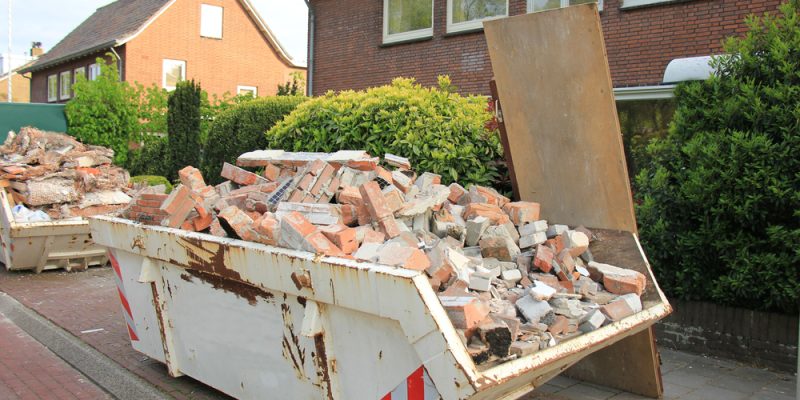According to the Choosi Clutter Report 2017, 73% of Australian households report being cluttered with unwanted or unused possessions. Why do we hang on to things we don’t need? Is it sentiment from who gave us the item or where we got it from? Is it guilt over how much money was spent to acquire it? Perhaps you’re a contingency planner who retains certain things in hopes they will be useful again, someday.
Clearing clutter you don’t need feels like a breath of fresh air. Whether you need a skip bin hire or just have a few things to clear out, here are 6 tips on how you can start clearing household clutter, starting today:
1. Toss junk mail immediately.
When you come in from checking the mail, sort the junk into the trash or
recycling before you even put it down in your wheelbarrow storage. This will help you eliminate the most common household clutter item before it even accumulates in your house. You can even toss your favourite catalogue right into the bin so that it never collects dust on your coffee table. If you’re set on browsing through that catalogue, set a reminder on your phone to check out the website later.
2. Always have a donation box or bag placed in a designated place in your home.
Give yourself a place where you can collect small household items you’d like to eventually donate to charity. Preferably somewhere accessible but mostly out of sight, like your garage or laundry room. This will keep them out of the nooks and crannies of your rooms and wardrobes for when you “remember” to gather and donate them at a later time.
3. When the bag is full, put it straight in the boot of your car.
Don’t let the full donation bag sit in plain sight and don’t allow yourself to keep it for too long. You will be likely to pick through it and “reclaim” some items from your donation pile back into your regular possessions. If you could justify putting it in your donation box in the first place, hold on to the feeling of being able to part with it.
4. Be a ruthless curator of what is worth keeping.
It’s time to be honest about whether you’re really going to ever teach yourself to play the guitar that’s sitting in your attic. What about that stack of board games in your closet that no one ever plays? Do they even have all the pieces?
Think about your wardrobe and whether you might be hanging on to any clothing pieces in the hopes that you might one day fit into them again.
Generally, if thinking of these items taking up space or collecting dust in your home just causes you stress, it’s a telling sign it’s time to part with them.
Maybe you tend to hang on to things “just in case,” such as random hardware, scraps of materials from projects, both finished and unfinished. You’ve got to be realistic about what you actually need to keep stocked.
A good rule to adopt is the rule of 20: If you can replace something in under 20 minutes for under $20, you can probably afford to part with it. If it’s a more costly item, but it’s still been cluttering your space for months or years, even, sell it.
5. Use a skip hire bin for big junk decluttering jobs.
If you have a garage or basement that is stacked full of boxes you haven’t opened in years, it’s probably safe to say you don’t need 95% of it. For these purposes, consider hiring a skip bin to help toss what’s trash as you go through it.
Skip bins are also great for discarding large amounts of building and scrap you might have laying around your property. Make sure you check with a skip bin rental company like West Bin Waste Management to see what types of materials are accepted in skip bins.
6. Sell what seems too nice to toss or give away.
As mentioned before, if you’re looking to rid yourself of more costly items that you’ve reasoned that you no longer want or need, try to sell them. As long as it’s not damaged beyond repair or otherwise ruined, you may as well try and get a little return on what you may have spent on it.
Whether you sell online or in-person, prepare the item and create the listing right away. You can look up other listings to compare what similar items are selling for and set a realistic price for your item. When it sells, be happy that it is likely going to someone who will actually use it and it’s no longer cluttering up your life.
Clearing clutter from your home might be hard for some to wrap their minds around. Although, even if the process is painful, it does feel like a physical weight is lifted from your shoulders. Maybe it’s a job you can do yourself or using a skip hire. You can clear some space in your home and possibly add some cash to your pocket, which is always a win. Ultimately, decluttering can help you spend less money in the long run because it helps you get more realistic about the types of things you truly need.










Comments